Redefining responsibility
India has pursued a careful, well-thought out policy to prove that it can be a responsible permanent member on the UN Security Council.
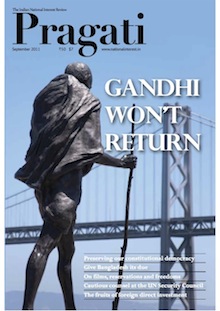 Courtesy: Pragati
Courtesy: Pragati
India has pursued a careful, well-thought out policy to prove that it can be a responsible permanent member on the UN Security Council.
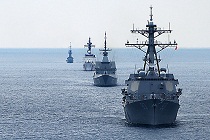 Courtesy: SurfaceForces/Flickr
Courtesy: SurfaceForces/Flickr
The turbulent waters of the South China Sea may soon see a major addition: an aircraft carrier, from China. The carrier - already seventy percent complete - is sure to change the equation and further Beijing's Four Modernisations programme.
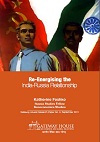 Courtesy: Gateway House
Courtesy: Gateway House
This paper assesses the India-Russia relationship in today’s context and explains why it is time for the two countries to re-energise the bilateral
 Courtesy: Foreign Affairs
Courtesy: Foreign Affairs
In 2001, fearing ethnic strife, the international community pushed for a strong central government in Kabul. But such fears fostered a system of regional and ethnic patronage. To correct matters, the U.S. should de-emphasize Afghanistan’s ethnic fault lines and push for more devolved and inclusive governance.
 Courtesy: Rex/WikimediaCommons
Courtesy: Rex/WikimediaCommons
While the fractious Indo-Bangladesh relationship has made progress over the past few months, both sides must engage in environmental diplomacy in the vulnerable Sundarbans region to ensure bilateral prosperity.
The economic turmoil in Europe and the U.S. has affected financial markets globally. India too witnessed a fall in its stock market and investments have slowed. Gateway House’s Samyukta Lakshamn speaks to S.P.Kothari (Massachusetts Institute of Technology), about the challenges that lie ahead for India.
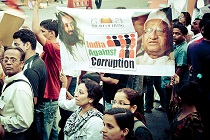 Courtesy: Nirzardp/WikimediaCommons
Courtesy: Nirzardp/WikimediaCommons
There is an underlying reason as to why India's anti-corruption movement has garnered immense support in such a short span of time: it is a highly-efficient management model. The right mix of marketing, motivation, operations and service is spearheading the process.
 Courtesy: babasteve/Flickr
Courtesy: babasteve/Flickr
As the world welcomes it’s newest yet probably its poorest nation, South Sudan, Gateway House’s Renu Modi analyzes India’s engagement with the Sudanese – from historical political linkages to investments that can boost relations.
Indian citizens dissatisfied with poor governance and corrupt dynastic regimes have taken to a traditional Gandhian method: non-violent protests.
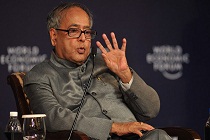 Courtesy: WorldEconomicForum/WikimediaCommons
Courtesy: WorldEconomicForum/WikimediaCommons
While the U.S. political leadership is stuck with extreme positions led by the Tea Party, India’s politicians do not seem to have a position at all. It is imperative for India’s political leadership to exercise prudent fiscal leadership to ensure that economic growth is balanced and equitable.